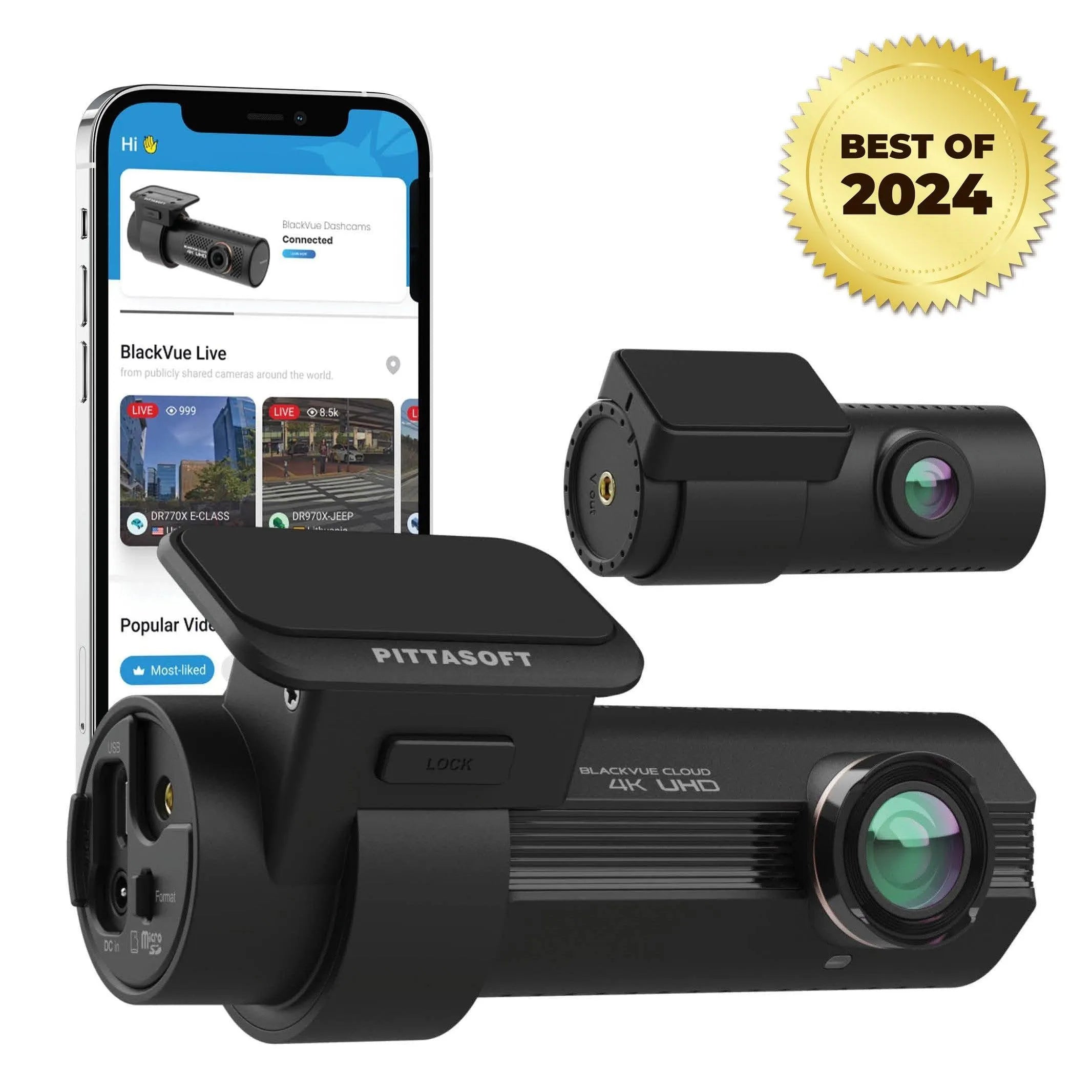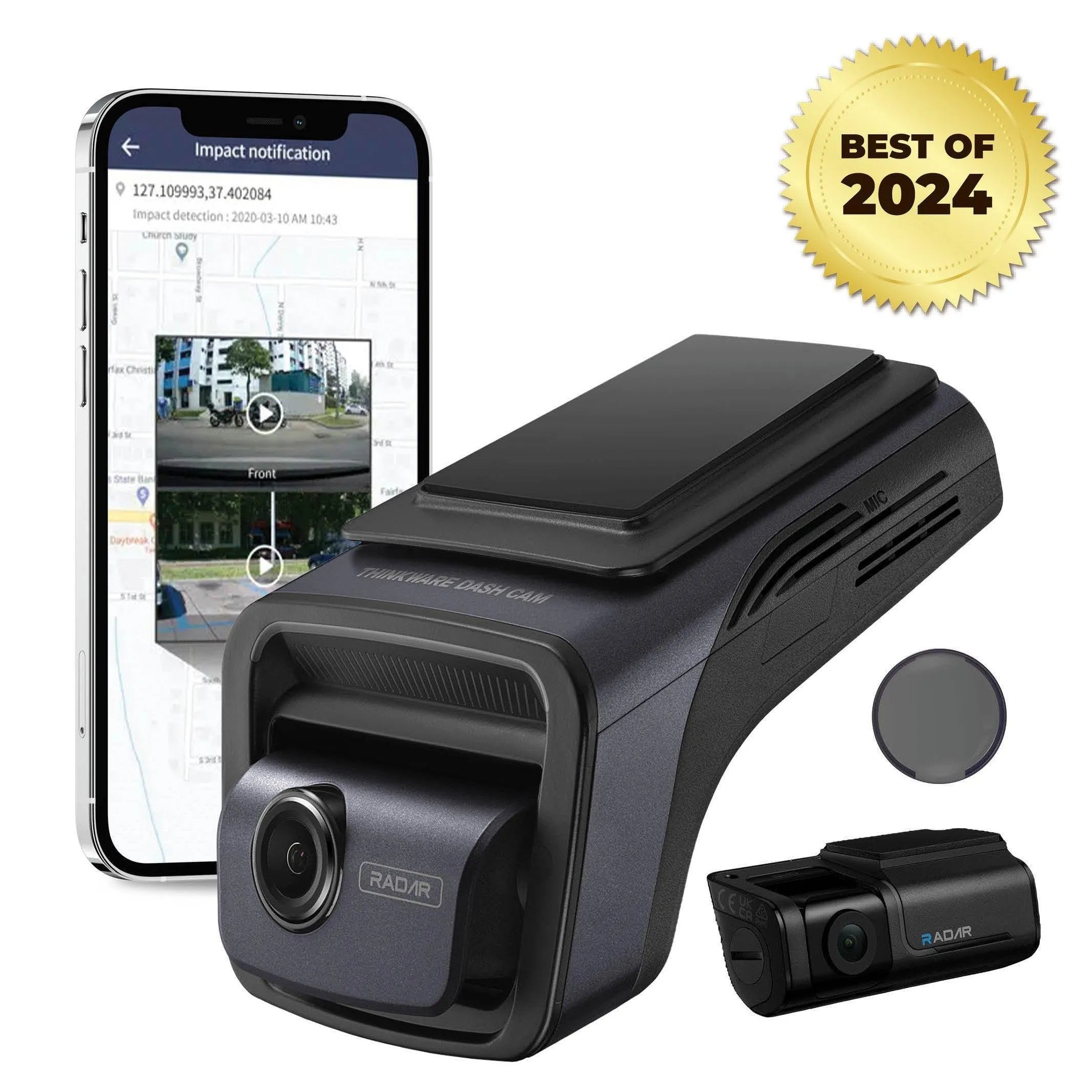How to conquer the cold weather with a dash cam
Conquer the Cold Weather
How to navigate the cold
December 23, 2022, the Alex Fraser Bridge right outside our Vancouver office froze over. Ice pellets, snow and freezing rain had created an icy obstacle course, affecting not only the Alex Fraser Bridge but serveral other bridges in Vancouver. Abandoned vechicles, jammed roads and closed bridges, it took many of us here at BlackboxMyCar over 7 hours to reach home that night. Come to think of it, the commute on past scorching hot summer days wasn't so bad after all - as long as your air conditioning works.
As temperatures continue to bounce more and more between scalding heat and freezing cold, it’s essential to keep you and your vehicle and your dash cam protected, no matter the situation. While I’m sure the AC is blaring in your car to keep you and your camera in healthy temperatures, things can change once you leave the vehicle, where the camera still needs to get the job done.
In this article, we will show you how to keep your camera and vehicle in tip-top shape through the icy winter nights. By choosing the right dash cam that is both resistant and durable, you can confidently conquer the cold weather.
Extra Pro Tip: For maximum protection, learn how to identify, avoid & navigate black ice.
What aspects of my dash cam are affected by cold weather?
When choosing a dash cam for your vehicle, there are a few things worth considering, especially for cold weather. The first thing to consider is the battery inside the camera.
We do not recommend using lithium-ion batteries. Instead, choose capacitors. Capacitors, or super capacitors, perform well in both cold and warm climates.
Most capacitor power supply manufacturers specify a safe operating temperature range of −40 to 70°C. All of our dash cams at BlackboxMyCar use capacitors, so you can browse through our selection with confidence!
Generally, when things freeze over, everything is coated in a layer of white, which at the very does have a silver lining, pun intended. That advantage being that most surfaces are now reflective, and this does lead to brighter videos overall, so night vision is less important in your dash camera.
Still, depending on this extra reflectiveness, it can lead to extra glare flying around into both the driver’s eyes and the camera’s. For this reason, we do firmly recommend a CPL filter for more extreme cold weather, which will help darken the video, and remove excess glare.
On that note, since so much is covered in snow or ice, small details can be harder to notice. That's why a dash cam with higher image quality is recommended, as 1080p to 4K resolution can make a difference in detecting small details like black ice or an icy license plate. For that reason, we recommend a 4K dash cam, or at least 1440p 2K QHD unit for colder climates.
It's important to keep in mind that 4K UHD units typically require more processing power to render high-quality footage, which can generate more heat in the unit. This can be a blessing in disguise on a freezing winter day.
Dealing with Icy windshields
A dash cam recording won't be of much use if a heap of snow or ice is blocking its view. Fortunately, since most of our cameras are mounted directly on the windshield with adhesives, and since dash cameras tend to heat up when in use, the heat it generates is often enough to melt the snow and ice, allowing you to wipe it down and clear the camera's view.
As an example, the BlackVue DR900X-2CH Plus has a tendency to run slightly warm. While this may initially raise concerns during hot summer days, the additional warmth it generates is actually beneficial during icy winter days. BlackVue's wide operating temperature range of -20°C - 70°C (-4°F - 158°F) ensure that your dash cam survives hot summer days and icy winter nights.
It’s also worth considering where the dash cam is mounted; a form-fitting model mounted in the center of your windshield would be more ideal than one hiding on the edges, where frequently leftover snow and ice buildup can block the view of the dash cam. The BlackVue lineup of cameras are our most discrete cameras, and its cylinder design fits neatly into most vehicles' center.
Still, some winter weather is a bit too heavy for a simple dash cam to tackle and melt. For those we’d recommend looking into some DIY Ice preventatives on the windshield, there are some interesting ones out there, some involving vinegar, salt water, rubbing alcohol, and even onions.
Your 12-Volt car battery in cold temperatures
Now, let's talk about 12-volt batteries, which power your car and often your dash cam. Extreme weather can have a significant impact on batteries of all types and sizes to varying degrees. Even your car battery will be affected if it gets cold enough, and you'll often find that the resting charge of the battery is lower as it retains less charge, and the voltage level before a jump start is required is higher, making the need for a jump start more likely.
Some dash cameras, like Thinkware, have a "wintertime battery protection" setting to prevent battery issues in the cold, although this will shorten the duration of parking mode. Losing parking mode is not ideal for many. If you're looking for parking mode in cold weather, we recommend considering a dedicated dash cam battery pack.
Dash cam battery packs, like the BlackboxMyCar PowerCell 8, are Lithium Iron Phosphate (LiFePO4) batteries. LiFePO4 batteries are designed and built to provide a larger capacity and high voltage retention in the cold compared to standard lead-acid batteries. While cold weather can impact the battery's overall performance, dash cam battery packs will function with relatively little loss below 0°C (32°F), providing 70-80% of their total capacity. However, it's important to keep in mind that battery packs will not charge efficiently in freezing temperatures, and charging at freezing temperatures can potentially cause long-term power retention issues in the battery.
To prevent this, we recommend wrapping the battery pack in proper insulation, such as a Thermal Blanket, Insulation Blanket, or Battery Blanket. Using standard insulation can also help prevent overheating in high-heat situations.
Best dash cams for cold weather
If you are looking for an ideal dash cam for your winter drive, our best dash cam would be the BlackVue DR970X-2CH Plus. This unit has better than usual operating temperatures, and when combined with its high heat output, it is sure to stand up against the toughest cold.
The DR970X Plus Dual Dash Cam has a 4k-UHD front camera, an optional CPL filter, and an 8MP Sony Starvis CMOS image sensor, making it ideal for crisp video quality, even when you’re squinting. These front and rear cameras come with wide angles for full coverage of your vehicle, with a rear camera recording in full hd, and wide-angle lenses on both, recording at 30 frames per second.
BlackVue's phone app features a seamless connection to your phone, and plenty of advanced features to tweak your experience. To ensure no yetis vandalize your car, pair it with the BlackboxMyCar PowerCell 8 battery pack to extend recording capabilities even after the car's parked and powered down.
You can also connect a mobile hotspot to the battery, or BlackVue CM100 LTE module to the dashcam, which allows the dash cam to be connect to the BlackVue Cloud 24/7 so you can tap into it remotely anytime, anywhere for a live view from the camera or to access the saved footage on the microSD card inside the dash cam.
What camera do you recommend for extreme heat and cold?
Some places experience extreme weather conditions, with temperatures fluctuating between hot and cold. It is important to choose a dash cam that can withstand both extreme heat and cold. While a BlackVue dash cam may run hot, it is built to handle intense heat, which can be useful when temperatures rise.
If you are looking for the most reliable extreme heat and cold dash cam, the Thinkware U3000 2-CH will be a better option.
The U3000 records in 4K quality and is designed to handle extreme heat while also being more energy efficient and running cooler than the BlackVue dash cam. Additionally, Thinkware units have a wintertime battery protection setting that reduces power draw during cold months when hardwired to your car battery.
However, because of its distinctive shape and design, finding the perfect mounting position may require some additional planning.



